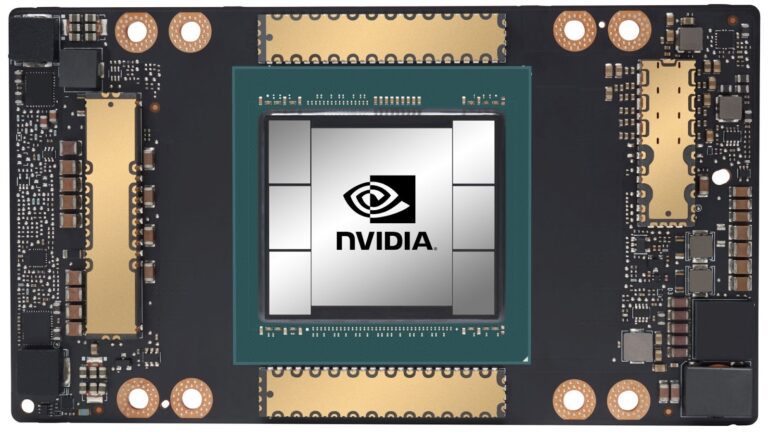TL;DR:
- Nvidia’s stock declined after reports surfaced about potential restrictions on the sale of powerful AI chips to China.
- The US government is considering closing loopholes and expanding curbs on lower-powered semiconductors used in AI training.
- This move reflects the Biden administration’s efforts to contain China’s technological rise and could strain US-China relations.
- Nvidia and AMD, leading chipmakers, may face challenges in their business with China, but they continue to drive AI development globally.
- Equipment manufacturers may benefit from the AI trend, as production may shift from China to other regions.
- ASML, the sole producer of high-end semiconductor lithography equipment, experienced a slight increase in stock value.
- US officials are also contemplating restrictions on cloud services leased to Chinese AI companies.
- The impact of these developments on the market remains uncertain, but Chinese firms may find workarounds to mitigate potential hurdles.
Main AI News:
In a recent development, Nvidia Corp., a leading tech giant, faced a downward trajectory in its stock price following reports of potential restrictions on the sale of powerful chips used for training artificial intelligence (AI) in China. The news raised concerns about the company’s sales in the world’s largest semiconductor market.
Nvidia, which derives around 20% of its revenue from China, experienced a 4.6% drop in premarket trading, causing a ripple effect in the tech stock market. Advanced Micro Devices Inc., a prominent rival in the chip market, also witnessed a decline of approximately 3.7%. These two companies dominate the market for chips crucial to the development of generative AI models like ChatGPT. As a consequence of the news, AI-related stocks faced a significant sell-off in China, resulting in a 10% decrease for Inspur Electronic Information Industry Co. and Unisplendour Corp., both key hardware suppliers in the country.
This year, Nvidia introduced less-capable chips that fall below the thresholds necessitating a license from the US Commerce Department for export to China or other countries of concern. However, anonymous sources cited in the Wall Street Journal report suggested that the US government is contemplating expanding the restrictions to encompass these lower-powered semiconductors as early as next month. This move reflects the Biden administration’s determination to curb China’s technological advancement and may exacerbate tensions between the two nations. The United States has growing concerns about Beijing’s technological ambitions, particularly in military and scientific domains, that could potentially alter the geopolitical balance, particularly with regard to AI utilization.
Despite the potential impact on Nvidia and AMD’s business with the second-largest global economy, these two chip manufacturers remain at the forefront of the AI development surge, attracting investments from the United States, Europe, and China. Noteworthy companies such as Microsoft Corp., Baidu Inc., and OpenAI, the developers of ChatGPT, along with numerous others worldwide, rely on their products to train the next generation of AI services.
Oddo BHF analysts, in a note on Wednesday, expressed their belief that this development would not significantly alter AI’s long-term roadmap and growth. They argue that if certain products face restrictions in China, they would be produced elsewhere, indicating that betting on equipment manufacturers involved in the AI trend is a safer option as it avoids the short-term risks associated with sanctions on chip manufacturers.
In Amsterdam trading, ASML, the exclusive producer of advanced semiconductor lithography equipment necessary for manufacturing highly sophisticated chips, experienced a 1.2% rise at 10:19 a.m. This indicates the potential impact of these developments on various sectors of the technology industry.
The Journal’s report also suggests that US officials are considering restricting the leasing of cloud services to Chinese AI companies, which often employ these platforms to train their models. Amazon.com Inc. and Microsoft, two of the world’s largest cloud service providers, may face implications from such measures. Nvidia refrained from commenting on the Journal’s report.
Robert Lea, an analyst at Bloomberg Intelligence, speculates that Chinese AI firms may find alternative sources for dedicated AI chips in third-party countries, making it difficult for the US to effectively enforce these regulations. While additional restrictions may temporarily impede AI development by Chinese companies, Lea does not anticipate any significant long-term impacts as Chinese firms adopt innovative workarounds to mitigate potential hurdles.
Nvidia, as the world’s most valuable chipmaker, boasts over 80% market share in data center accelerator chips, and had previously operated under rules requiring approval for shipments of its A100 and new H100 parts to China. The company managed to mitigate the financial impact by selling a modified version of the A100, which has slower data access and thus did not trigger the restriction.
AI accelerators, such as graphics processors (GPUs), are tailored for training AI models by processing vast amounts of data. Due to their parallel processing capabilities, they outperform general-purpose CPUs in these tasks. Nvidia’s pioneering efforts in developing a language to enable GPUs to handle AI tasks provided them with a significant advantage over competitors like AMD and Intel Corp.
Last August, AMD also faced initial restrictions similar to Nvidia’s. Although Nvidia was affected to a greater extent, reporting an estimated $400 million loss in the quarter due to these constraints, AMD managed to emerge relatively unscathed from the clampdown.
Conclusion:
The potential curbs on AI chip sales to China could have significant implications for both Nvidia and the overall semiconductor market. While this move aligns with the US government’s intention to restrict China’s technological progress, it may strain bilateral relations. However, Nvidia and AMD, as prominent players in AI development, are still well-positioned to benefit from the global surge in AI investments. The market landscape may witness a shift in production as equipment manufacturers become attractive options. The impact on cloud service providers and the long-term consequences of these restrictions remain uncertain, but Chinese companies’ innovative approaches suggest that the AI industry will continue to evolve.

